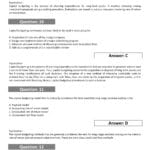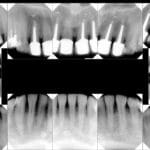Are you curious about when you’ll get your first period? Online “period prediction quizzes” abound, but can they accurately predict this significant milestone? This comprehensive guide delves into menarche (your first period), empowering you with knowledge about your body’s changes, the limitations of online quizzes, the realities of puberty, and essential self-care tips.
The Truth About Period Quizzes: Educational, Not Predictive
Online period quizzes can be engaging, but they aren’t fortune tellers. They cannot pinpoint the exact date of your first period. Every individual’s body is unique, and numerous factors influence the onset of menarche. These quizzes provide a general idea based on common pubertal patterns. Consider them educational tools, not definitive predictors. A recent study published in the Journal of Adolescent Health found that while quizzes can raise awareness about puberty, their predictive accuracy is limited.
Understanding the Limitations of Online Quizzes
Period quizzes typically inquire about breast development, pubic hair growth, and growth spurts – all normal signs that your body is preparing for menstruation. It’s akin to observing a tree’s growth – you witness the changes, but predicting the precise moment a flower will bloom is impossible. Quizzes provide a potential timeframe, but it’s essential to acknowledge their inherent limitations: your responses and memory may not be perfect, individual development varies due to genetics, diet, and overall health, and quizzes offer guidelines, not guarantees. Don’t be alarmed if your period arrives earlier or later than a quiz suggests – variations are perfectly normal.
A responsible quiz should educate about the stages of puberty, explain what to expect during your first period, offer practical management tips (hygiene, cramps, product choices), and direct you to reliable health resources like the American Academy of Pediatrics (AAP). Be wary of quizzes lacking scientific backing, as they can disseminate misinformation. Always consult reputable sources for health advice. Indicators of an unreliable quiz include a lack of cited sources, unrealistic promises, and an overreliance on anecdotal evidence.
Beyond Quizzes: Seeking Support and Tracking Development
Most girls experience menarche around age 12.5, but anytime between 10 and 16 is considered normal. Feeling anxious? Communicate openly with a parent, trusted adult, school nurse, or doctor. They can offer support, accurate information, and reassurance. Research indicates that open communication with a trusted adult significantly reduces anxiety surrounding menarche.
Tracking physical changes offers valuable insights. Maintain a journal documenting breast development, pubic hair growth, height and weight changes, and other secondary sexual characteristics. This self-monitoring empowers you to understand your unique timeline. However, remember these are indicators, not definitive predictors. Consult a doctor if you experience significant deviations from typical pubertal development or have concerns about your progress.
Online tools and apps can estimate menarche based on individual information. Remember, these are estimates, not certainties. They consider factors like age and family history, but individual variations always exist. These tools are not substitutes for professional medical advice. Relying solely on online predictors can create unnecessary anxiety.
A comprehensive approach combines self-monitoring of physical changes, consultation with period predictors for general insights, and open communication with your doctor. This integrated strategy offers the best understanding of your pubertal journey.
Menarche Onset Prediction Accuracy in Diverse Populations
Predicting the exact onset of menarche is complex, influenced by an interplay of factors like genetics, nutrition, socioeconomic status, and ethnicity. Understanding prediction accuracy in diverse populations is crucial because these factors contribute to variations in timing. Common misconceptions include believing menarche is solely age-dependent or entirely unpredictable. The reality is a complex interplay of influences.
Family history, nutrition, overall health, and socioeconomic factors all play a role in menarche timing. Studies have linked lower socioeconomic status with earlier menarche due to factors like healthcare access and nutrition. Race and ethnicity add another layer of complexity. Body mass index (BMI) also significantly influences menarche timing, with higher BMIs often linked to earlier onset. Understanding these diverse factors is essential to avoid generalizations and appreciate individual variability, promoting inclusivity and personalized care.
Online period predictors, while potentially engaging, should not be the primary source of information. They often oversimplify a complex process, offering limited guidance. Combining tracking physical changes with consultations with healthcare providers offers more personalized and reliable insights.
Accurate menarche prediction benefits both individuals and public health. Early or late menarche can indicate underlying health issues. Accurate information empowers individuals to navigate this change confidently and understand potential long-term health considerations. Consulting a healthcare professional provides personalized advice, addresses concerns, and offers access to appropriate resources.
Emotional and Physical Well-being During Menarche
Menarche impacts both emotional and physical well-being. Understanding physiological changes and managing symptoms is crucial for a smooth transition. Open communication with parents, guardians, and healthcare providers is vital. Positive self-care practices, including balanced nutrition, regular physical activity, and adequate sleep, significantly enhance overall well-being. Access to accurate information about menstruation reduces anxiety and promotes empowerment.
Menstrual discomfort, including cramps, bloating, and breast tenderness, is common. Over-the-counter pain relievers (ibuprofen), gentle exercise, rest, warm baths or heating pads, and a balanced diet can help manage symptoms. Natural remedies like gentle exercise, yoga, and relaxation techniques can also provide relief.
Emotional well-being is equally important. Mood swings are normal due to hormonal fluctuations. Open communication with trusted individuals, stress management techniques (deep breathing, mindfulness), and maintaining a healthy lifestyle contribute to emotional balance. Remember, menarche is a natural transition. Seeking support and prioritizing self-care can make this experience positive and empowering. Reliable resources include the AAP and Planned Parenthood. Embrace this new stage with confidence and open communication.
- Unlock Water’s Symbolism: A Cross-Cultural Exploration - April 20, 2025
- Identify Black and White Snakes: Venomous or Harmless? - April 20, 2025
- Unlocking Potential: Origins High School’s NYC Story - April 20, 2025















